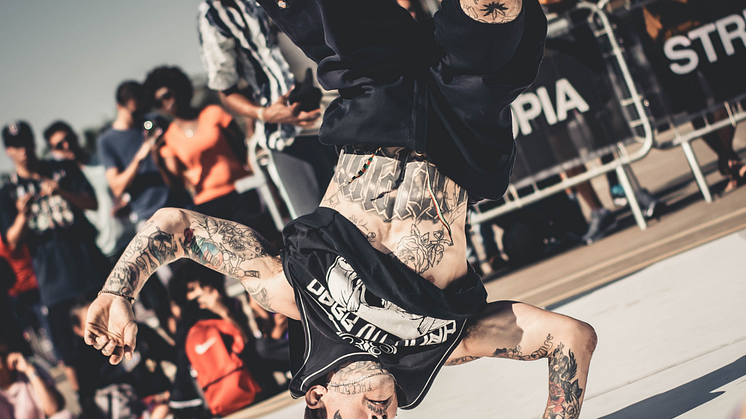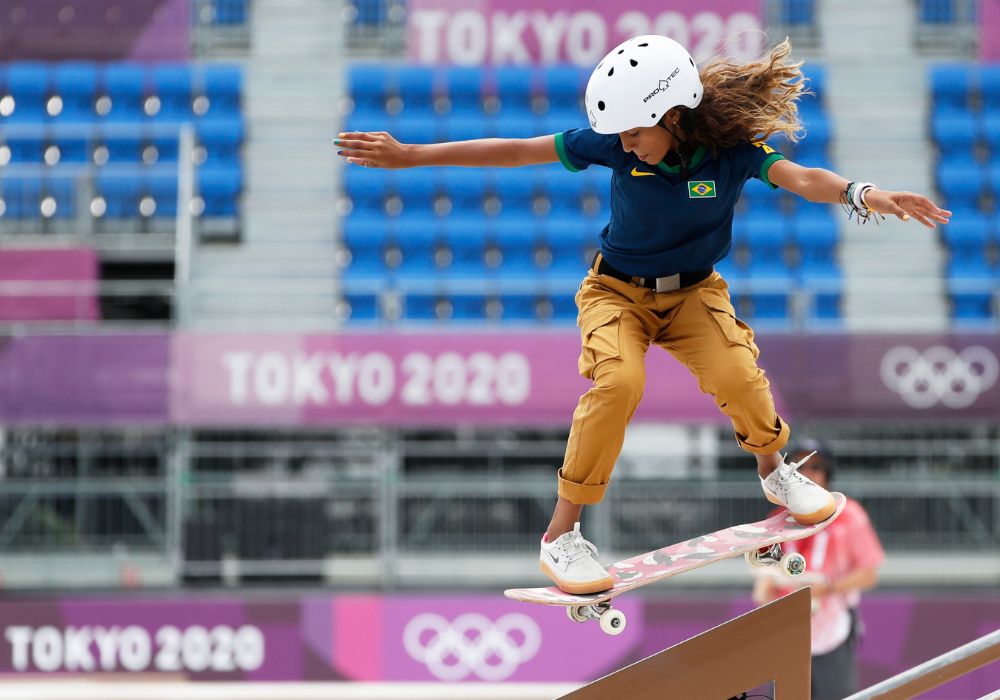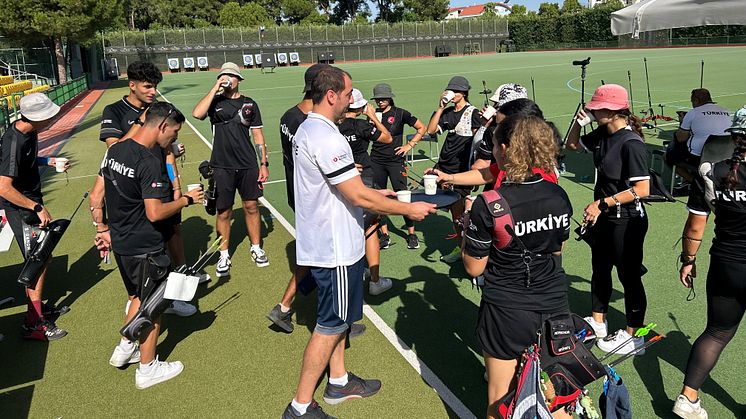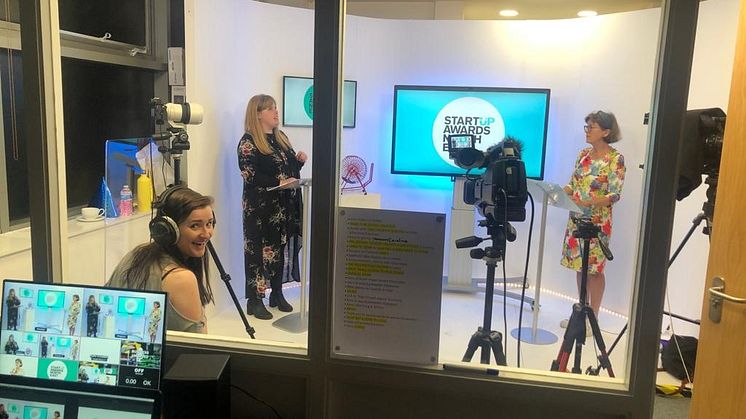
Press release -
Olympics: why not all new sports will return at Paris 2024 – but breakdancing will make its debut
Following the appearance of several new sports at the Tokyo 2020 Olympic Games, Senior Lecturer in Sport Management at Northumbria University, Dr Mikhail Batuev, provides expert commentary on how the most recent additions fared in an article written for The Conversation.
Never in the history of modern Olympics has so many new sports made their debut than in Tokyo 2020. Skateboarding, surfing, sport climbing and karate have now got their maiden Olympic champions, while softball and baseball returned to the Games since they were last seen in 2008.
Five years ago, the decision to include these sports was made by the International Olympics Committee (IOC) to appeal to the youth. For the host nation, Japan, these sports were also highly relevant to them. Baseball is Japan’s biggest sport, karate is a traditional favourite and skateboarding is popular among young people.
Some of the new additions will return at Paris 2024. While most of them were hits with audiences watching as well as the athletes competing in them, others still have kinks that need to be sorted out before they return.
Skateboarding stood out
Having researched skateboarding and its bumpy road to the Olympics for many years, I am certainly a bit biased, but I thought it attracted the most attention out of the five new sports for several reasons. First of which was the participants’ age.
No doubt many Olympic viewers were fascinated to see the youngest ever Olympic podium with the average age of 14 years. For a group of teenagers, there was amazing sportsmanship and maturity on display. Sky Brown, a 13-year-old sensation from the Team GB, was first to run over to her competitor, Sakura Yosozumi, after she won skateboarding’s park contest. This played out across the competition with competitors cheering each other on and congratulating winners from other teams.

Image: Brazilian skater Rayssa Leal. Credit: A.RICARDO / Shutterstock.com
Skateboarding also made its debut in style. From 90s-inspired multi-coloured uniforms of the US skaters to Brazilian Rayssa Leal’s tan-coloured cargo pants held up by a black skater belt to Japan’s Aori Nishimura’s all-white uniform and platinum blonde hair, Olympic skateboarding outfits were unanimously praised.
Bryce Wettstein, a 16-year-old skater from California, even brought her ukulele to take the edge off the Women’s Skateboard Park Finals a bit. Olympics are known to be the high-pressure environment, and it was very refreshing to see at least skateboarding part of the Games feeling like a gathering of teenagers having fun and cheering for each other.
Tough questions in sport climbing
While the novelty of skateboarding received all round praise, sport climbing left some fans split on whether Olympic climbing made sense at all.
Sports climbing is a unique sport in the Olympic programme (there is nothing similar to it) and was a hit in Tokyo for those who had never seen it before.
The controversy originated when the IOC decided to allocate only one medal set for sport climbing instead of three. As a result, the governing body of sport came up with the “combined” format of three key types of climbing: bouldering, lead and speed climbing. The latter plays well on television, but in fact it has always been considered a fringe discipline among the core climbers and the most different from the other two.
Climbers normally specialise in a single discipline and given the different skill sets needed for each, the combined Olympic format can be compared to asking swimmers to do a diving competition too, or asking Novak Djokovic to compete in table tennis for the first set. It looks like the fears of climbing community were true, as Adam Ondra, who many see as the best climber in the world, had to spend last year training specifically for the speed part and still did not make the Olympic finals.
It feels unfair perhaps, looking at established Olympic sports like swimming or cycling where the same athletes are able to compete for numerous medals in separate disciplines or relays. There has been a lot of politics behind the IOC relationships with action sports, but it does look like they should have listened to the sport community.
What Paris 2024 will have in store
With the 2020 Olympics delayed for a year by the pandemic, the next summer Games are now only three years away. The Paris 2024 preview video that played during Tokyo’s closing ceremony had a very urban and artistic vibe to it, and we can expect the “modernisation” of the Games to continue. Part of this modernisation comes with the addition of another new sport in 2024: breakdancing.
It might have been unthinkable to see it in the Olympics ten years ago (and yes, it is a sport), but the was true for skateboarding. Karate, baseball and softball worked great for Japanese viewers and athletes but will be dropped as, presumably, they are not that relevant to France, where breakdancing is a huge part of youth culture.
Surfing, skateboarding and sport climbing (with more medals thankfully) are there to stay and strengthen the IOC standard for youth-centred and more gender-balanced Games.
Research I took part in a few years ago showed that action sports tended to keep women and minorities to the margins of the sports. While commercially men’s action sports are still miles ahead, it was heartening to see that Tokyo 2020 indicated a shift from that exclusivity – with female athletes like skater Sky Brown and surfer Carissa Moore becoming icons in sports traditionally dominated by men.
In coming years, expect to see more girls in skateparks, surfing spots and climbing gyms. And hopefully, governing bodies will give them the same amount of support so the best of them might become the next generation of Olympians.
Topics
Categories
Northumbria is a research-rich, business-focused, professional university with a global reputation for academic excellence. Find out more about us at www.northumbria.ac.uk --- Please contact our Media and Communications team at media.communications@northumbria.ac.uk with any media enquiries or interview requests ---











